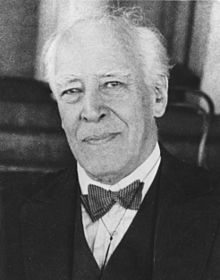Wednesday 13th May
In this session, we looked at emotion memory . This is where you remember a specific memory and use the emotion from that to act out a scene where that emotion is relative.
Thursday 14th May
In this session, we focused on Stanislavsky and his background in theatre and acting. He was born on January 5 1863 and died on 7 August 1938 and was a Russian actor and theatre director. The Stanislavsky system has had a pervasive influence, especially in the period after World War II.
Stanislavsky treated theatre-making as a serious endeavour requiring dedication, discipline and integrity. Throughout his life, he subjected his own acting to a process of rigorous artistic self-analysis and reflection. His development of a theorized praxis—in which practice is used as a mode of inquiry and theory as a catalyst for creative development—identifies him as one of the great modern theatre practitioners.

Stanislavsky's "system"

Stanislavsky's "system"
"Stanislavsky's "system" is a systematic approach to training actors. Areas of study include concentration, voice, physical skills, emotion memory, observation, and dramatic analysis. Stanislavsky's goal was to find a universally applicable approach that could be of service to all actors. Yet he said of his system: "Create your own method. Don't depend slavishly on mine. Make up something that will work for you! But keep breaking traditions, I beg you."
Many actors routinely identify his system with Lee Strasbourg's Method approach, an adaptation of Stanislavsky's approach. Strasbourg's adaptation relied exclusively on psychological techniques and contrasted sharply with Stanislavsky's multivariate, holistic and psycho-physical approach, which explores character and action both from the "inside out" and the "outside in." Stella Adler, who had studied with Stanislavsky, offered an American adaptation of the technique much more in keeping with that of Stanislavsky focusing on both inner and outer sources of experience in building a character."
Emotion memory
Stanislavsky's system focused on the development of artistic truth onstage by teaching actors to "experience the part" during performance. Stanislavsky hoped that the 'system' could be applied to all forms of drama, including melodrama, vaudeville, and opera. He organised a series of theatre studios in which young actors were trained in his 'system.' At the First Studio, actors were instructed to use their own memories in order to express emotion.
Stanislavsky soon observed that some of the actors using or abusing this technique were given to hysteria. He began to search for more reliable means to access emotion, eventually emphasizing the actor's use of imagination and belief in the given circumstances of the text rather than her/his private and often painful memories.
The Method of Physical Actions
In the beginning, Stanislavsky proposed that actors study and experience subjective emotions and feelings and manifest them to audiences by physical and vocal means. While in its very earliest stages his 'system' focused on creating truthful emotions and embodying them, he later worked on the Method of Physical Actions. This was developed at the Opera Dramatic Studio from the early 1930's. Its focus was on physical actions as a means to access truthful emotion, and involved improvisation. The focus remained on reaching the subconscious through the conscious.
Source of information: http://en.wikipedia.org/wiki/Konstantin_Stanislavsky
I would use the more technical approach rather than using emotion memory to act natural as I think using emotion memory is unethical as an actor could unlock a memory of a bad time for them and not be able to turn it off or on in their acting as this would have made them too emotion to focus on acting. Using a technical approach allows them to act naturally without accessing real emotions by them remembering things that could emotionally harm them.
Blocking
In this session we looked at reading the piece and blocking it through. As this is a very naturalistic scene, it focuses more on the characters and their dialect and language rather than their movement and actions. This scene is considered to be very awkward between Helena and Alison
Source of information: http://en.wikipedia.org/wiki/Konstantin_Stanislavsky
I would use the more technical approach rather than using emotion memory to act natural as I think using emotion memory is unethical as an actor could unlock a memory of a bad time for them and not be able to turn it off or on in their acting as this would have made them too emotion to focus on acting. Using a technical approach allows them to act naturally without accessing real emotions by them remembering things that could emotionally harm them.
Blocking
In this session we looked at reading the piece and blocking it through. As this is a very naturalistic scene, it focuses more on the characters and their dialect and language rather than their movement and actions. This scene is considered to be very awkward between Helena and Alison
